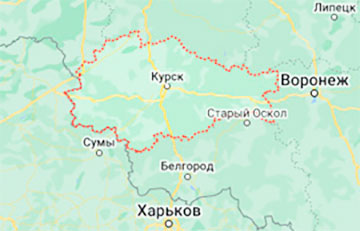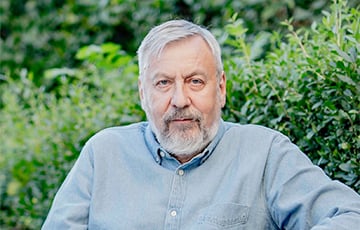Masks Off
6- PIOTR VODKIN
- 21.08.2024, 9:31
- 13,654

The lesson for Belarusians from the operation in the Kursk region of the Russian Federation
Remember when Putin said that enlisted soldiers would not be involved in combat operations? The price of the Kremlin chief's word is now well known.
In fact, Moscow has been throwing untrained young men under fire since the first days of the war. But at first, it was somehow... with shyness, perhaps....? But now the masks are off.
Apti Alaudinov, deputy head of the military-political department of the Russian Defence Ministry, cynically stated:
‘I've been observing such a picture lately - sobs, outbursts that conscripts should not fight. And in general, why are they even in Kursk region? Friends, if your children, 18 years old, are already in the Ministry of Defence, they are servants. And they must defend their Fatherland even when the enemy has attacked it and when it is on our territory. I have one question for you in general: why does this country need you and your children?’
And then Alaudinov ‘consoled’:
‘No one who is not destined to die will die. But if you die defending your Fatherland, your faith in God, you will go to paradise. And what could be better for man than paradise in the way of the Almighty? Nothing.’
It would be possible to write off such nonsense to the self-activity of a particular character. But no: lately, the cult of death has increasingly permeated the Russian propaganda vertical from bottom to top.
Here, for example, defector, former Ukrainian MP and now Russian imperialist Oleg Tsarev has found the ‘meaning of death’:
‘It's a problem that there is no image of victory. However, the goals of the special operation are somewhat blurred. An image of victory must be formed. The media should tell and show what will happen when we win. And this - what will happen after the victory - should be attractive enough to make it possible and necessary to die for it’.
In other countries you should live, but in Russia, it turns out, ‘you should die’. For the sake of ‘victory’. Without asking questions like ‘who needs this war and why?’.
And here's how Putin ‘calmed down’ the mother of one of the soldiers:
‘About 30,000 people die in road accidents, and about the same number die from alcohol... Some people live or don't live - it's unclear, and how they leave - from vodka or something else - it's unclear, and then they left... And your son lived. His goal was achieved. In this sense, of course, his life turned out to be significant, with a result. And with the kind of result he was striving for to achieve.’
In fact, it follows from Putin's words that the soldier had set himself the goal of dying. And that is presented in Russia as a supreme achievement!
Since even in Russia there are not enough people who believe such manipulations, they are luring to war not only with promises of paradise and ‘right death’, but also with money. They pay huge salaries by Russian standards and the ‘coffin’ money to the families of the dead.
Political scientist Vladimir Pastukhov called it ‘a pyramid of death, which is being built in Russia at the pace of shock-work construction’:
‘If 140,000 euros are paid for each person killed (I convert to hard currency to cut off the zeros), and the average salary in Russia is approximately 730 euros a month, then for each person killed, the family receives approximately 16 years’ average salary.
If we take into account that a significant part of the army contingent is now people who receive not the average but the minimum wage, which in the current year is about 192 euros, then the compensation in case of their death for their families is up to 60 years of their potential income ...
We are faced with an unprecedented seduction of the people by the temptation of death. ‘Our business is death’ - this is not the Wagner motto, but the principle of existence of the Russian people, who, taking advantage of the opportunity (the war), are agitating today to exchange life for death at a very favourable rate.’
Two points as a summary. First: the builders of the ‘pyramid’ themselves are not at all eager to give up their lives as soon as possible. Second: if they had such an opportunity, they would gladly throw the ‘Belarusians’ into the furnace of war. Today we are saved from this fate by declaring independence in 1991.
Will it save us tomorrow? It is a big question, taking into account that the current authorities are gradually abandoning the state sovereignty of Belarus.
The ideas of ‘integration’ with Russia are not so attractive and harmless as they are presented by propagandists. We Belarusians are peace-loving people. But in order to remain so, it is necessary to keep a distance from Moscow. Drawing closer to it is deadly dangerous.
Piotr Vodkin, ‘Salidarnasts’.











